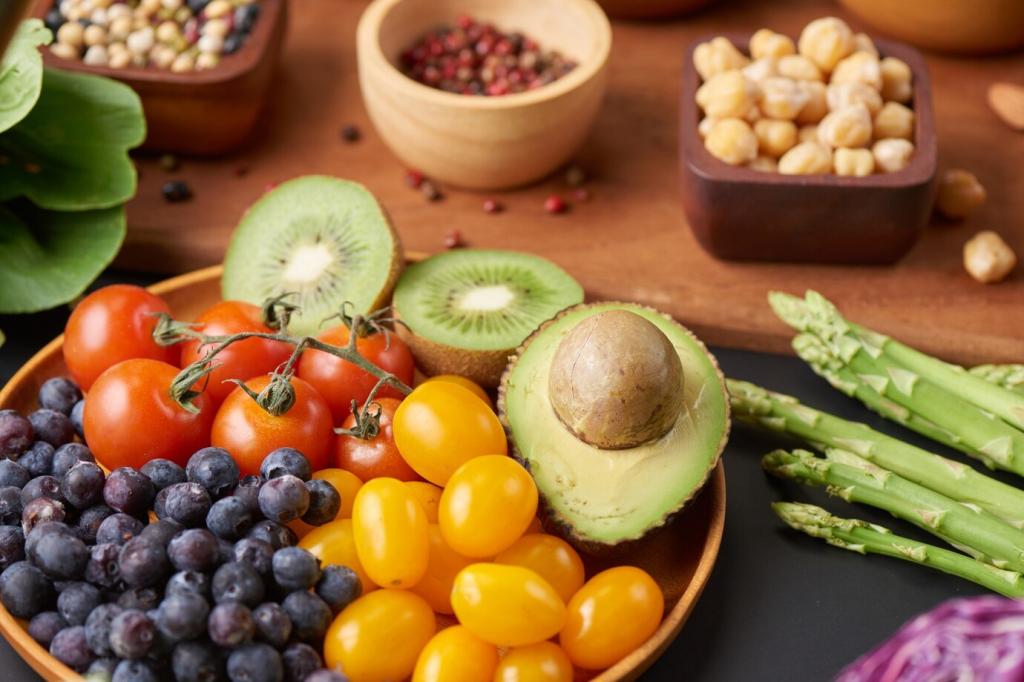
Benefits of Using Organic Fertilizers for Indoor Plants
Organic fertilizers have surged in popularity among indoor plant enthusiasts, offering a natural and effective way to nurture vibrant, healthy greenscapes inside the home. Unlike their synthetic counterparts, organic fertilizers are derived from living matter, making them kinder to the environment and often more beneficial to the plants themselves. This comprehensive guide explores how turning to organic options can revolutionize the care and vitality of your indoor plants, ensuring they thrive year-round.
Enhanced Soil Health
Organic fertilizers introduce organic matter that serves as food for beneficial microbes, bacteria, and fungi in potting soils. This increase in microbial activity breaks down nutrients into forms that are easier for plants to absorb. Over time, a thriving micro-ecosystem establishes in the soil, helping to suppress harmful pathogens and diseases common in indoor environments. Enhanced microbial life also aids in decomposing organic material, continually refreshing the growing medium and improving root health. The result is a more dynamic, self-sustaining soil community that actively supports plant vitality without relying on synthetic additives.
Organic matter from natural fertilizers improves the texture, structure, and nutrient-holding capacity of indoor potting mixes. As the materials decompose, they create channels for air and water, preventing compaction and promoting better root growth. This rich, crumbly soil holds onto nutrients more effectively, making them accessible to plant roots over time rather than allowing them to leach away after watering. This not only promotes healthy plant growth but also reduces the frequency with which fertilizers need to be reapplied, making indoor gardening more efficient and sustainable.
Synthetic fertilizers can accumulate salts and chemicals in indoor potting mixes, leading to toxic buildups that damage roots and inhibit plant growth. In contrast, organic fertilizers are slow-releasing and break down naturally, minimizing the risk of over-fertilization or chemical residue build-up. This natural breakdown process ensures that essential nutrients are available when needed, but not in excess, thereby creating a safer environment for sensitive indoor plants and reducing maintenance concerns for plant owners.
Unlike synthetic fertilizers that can deliver a sudden surge of nutrients, organic fertilizers gradually release their components as they decompose and are broken down by soil organisms. This slow, consistent feeding prevents nutritional shock and supports steady plant growth. Indoor plants benefit from a reliable food source over weeks or even months, helping them adapt to changes in their environment and reducing the risk of stunted growth or leaf burn caused by overfeeding.

Safer for Indoor Environments
Most organic fertilizers are made from plant-based, animal-derived, or mineral sources that pose little to no risk to human and animal health when handled properly. Unlike certain synthetic blends that may contain harsh chemicals, residues, or additives, organic products are generally free of substances that could be harmful through accidental ingestion or skin contact. This makes them particularly suitable for living spaces where curious hands or paws might come into contact with potting soil.
Previous
Next
Renewable and Biodegradable Sources
Organic fertilizers are typically produced from renewable resources—such as composted plant material, manure, or natural minerals—that are further recyclable or biodegradable. This contrasts with the extraction and manufacturing processes required for many chemical fertilizers, which can deplete natural reserves and pollute the environment. By choosing organic, indoor gardeners actively support resource conservation and sustainable agriculture practices.
Lower Carbon Footprint
Producing and transporting synthetic fertilizers often require significant energy inputs and fossil fuels, contributing to greenhouse gas emissions. Organic fertilizers generally involve simpler production methods, frequently available from local or recycled sources with minimal processing. This dramatically lowers their carbon footprint, making organic fertilization an ideal component of a greener lifestyle and more planet-friendly indoor gardening.
Supporting Local and Circular Economies
Many organic fertilizers are developed by local producers, community gardens, or urban composting initiatives. By sourcing these products, indoor gardeners invest back into their communities and encourage sustainable business models. This support helps to close waste loops, where kitchen scraps and local green waste are returned to the soil as valuable nutrients, rather than ending up in landfills. This cycle strengthens local economies and promotes responsible stewardship of natural resources.
Improved Plant Resistance and Immunity
Organic fertilizers often contain beneficial microorganisms that compete with harmful fungi, bacteria, or pathogens in the potting soil. This competition can create an inhospitable environment for disease-causing organisms, acting as a first line of defense for indoor plants. Over time, these beneficial microbes can establish a synergistic community that not only suppresses diseases but also breaks down contaminants before they become a threat to plant health.

Environmentally Friendly Nutrient Cycling
Reducing Waste through Composting
Many organic fertilizers originate from composted materials, transforming kitchen scraps or garden trimmings into valuable plant food. This closed-loop system keeps organic waste out of landfills, lowering methane emissions and extending the usefulness of everyday materials. By fertilizing your indoor garden with compost-based products, you contribute to a practical form of recycling that supports both your plants and the planet.
Harmonious Nutrient Uptake
Organic fertilizers encourage slow, balanced nutrient uptake, allowing indoor plants to absorb what they need without excess run-off or waste. This harmony mirrors natural ecosystem cycles, preserving soil fertility and minimizing dependencies on external inputs. The continuous gentle feeding avoids nutrient imbalances that can disrupt plant health, supporting lush, healthy growth without the threat of leaching or depletion.
Replenishing Soil Life
The organic matter introduced by these fertilizers is a long-term investment in the vitality of your growing medium. Over time, it builds up soil life and humus, the dark, nutrient-rich component of healthy soils. This ongoing enrichment maintains soil fertility and structure, ensuring future generations of indoor plants have access to a sustainable growing environment—a vital consideration for dedicated indoor gardeners or collectors.
Reduced Need for Additional Amendments
Because organic fertilizers improve the overall health of potting soil and plant systems, they reduce the need for frequent supplements such as trace minerals or pH adjusters. Houseplant owners will find their plants more self-sufficient, requiring fewer interventions to correct nutrient imbalances or poor growth. This streamlined approach saves money over time and diminishes the frequency of purchasing additional gardening products.
Minimizing Repotting Frequency
The enhanced root development, soil life, and structure encouraged by organic fertilizers contribute to longer-lasting potting mixes. Indoor plants are less likely to outgrow their containers or require complete soil refreshes, which can be labor-intensive and costly. This stability is beneficial not only for your wallet but also for minimizing plant stress, keeping your indoor collection healthier and more attractive between routine maintenance.
Long-Term Plant Longevity
Regular use of organic fertilizers sets up indoor plants for long, robust lives. Healthy plants experience fewer setbacks, remain attractive, and are less likely to require replacement due to avoidable nutritional problems or soil exhaustion. Investing in organic plant care pays dividends through diminished plant loss, lower long-term costs, and the satisfaction of nurturing flourishing indoor greenery for years to come.
